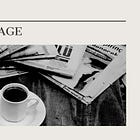Federal Budget Hit With $6 Billion Annual Cost From WA GST Deal, Economist Says
Special arrangement with Western Australia effectively doubles projected deficit, sparking renewed calls for reform
This piece is freely available to read. Become a paid subscriber today and help keep Mencari News financially afloat so that we can continue to pay our writers for their insight and expertise.
Today’s Article is brought to you by Empower your podcasting vision with a suite of creative solutions at your fingertips.

A controversial GST distribution deal is costing the federal government $6 billion annually and has effectively doubled this year’s budget deficit, according to independent economist Saul Eslake, who called the arrangement “the worst public policy decision of the 21st century.”
Speaking on Sky News AM Agenda today, Eslake said without the Western Australia GST agreement, the federal government’s projected $10 billion deficit would be cut to roughly $4 billion.
“The cost of the worst public policy decision of the 21st century is being borne by the federal budget,” Eslake said. “The federal government has to top up the pool of GST revenue in order to give Western Australia what it wants without making the other states and territories worse off.”
The sharp criticism comes as Treasurer Jim Chalmers prepares a business tax review that will examine the GST distribution system, though the government remains publicly committed to the WA arrangement.
Truth matters. Quality journalism costs.
Your subscription to Mencari directly funds the investigative reporting our democracy needs. For less than a coffee per week, you enable our journalists to uncover stories that powerful interests would rather keep hidden. There is no corporate influence involved. No compromises. Just honest journalism when we need it most.
Not ready to be paid subscribe, but appreciate the newsletter ? Grab us a beer or snag the exclusive ad spot at the top of next week's newsletter.
How the Deal Works
Under the current system, introduced by the Morrison government and extended by the Albanese government, Western Australia receives more than $6 billion annually above what the state needs to provide services comparable to other states while maintaining similar tax levels.
The federal government funds this gap by topping up the total GST revenue pool, meaning the cost doesn’t come from other states but directly from Commonwealth coffers.
“People accuse me of saying I just want more money for Tasmania,” Eslake said. “If the deal was scrapped, as I hope it will be, Tasmania wouldn’t be getting any more money, nor would Victoria or any of the other eastern states and territories. The federal government would be losing less.”
Assistant Treasurer Daniel Molino, interviewed earlier in the program, defended the existing framework while carefully avoiding direct comment on the WA-specific arrangements.
“I think the GST carve-up approach that was set up when the GST was originally enacted I think is broadly right, that we look to divide it amongst states, taking into account their spending needs and requirements,” Molino said.
Political Tightrope
Eslake suggested Molino, who holds a doctorate in economics, privately understands the problems with the deal but is constrained by cabinet solidarity.
“Daniel Molino is a decent economist who I think would privately know that the GST deal is wrong,” Eslake said. “But because he’s a minister and bound by cabinet solidarity, he has to uphold what the more senior ministers in his government have committed themselves to.”
The arrangement has become politically toxic, with state premiers lacking incentive to relinquish the revenue despite broader fiscal implications.
“It becomes a really parochial argument,” the program host noted, “because they’ve got no political incentive to give up that revenue for the greater good, because they still need to be elected by the people in their states and territories.”
Asymmetric Risk
Eslake criticized the deal’s one-sided structure, describing it as “heads WA wins, tails the federal government loses.”
If iron ore prices fell from current levels above $100 per tonne to $50 per tonne, Western Australia’s GST share would automatically increase under traditional distribution formulas. But the current arrangement includes a floor on WA’s share when commodity prices are high, with no corresponding ceiling when prices fall.
“If WA wants to insulate itself from some of the fluctuations in commodity prices, it’s open to Western Australia to set up some kind of sovereign wealth fund and put away some of the money it’s currently reaping from mineral royalties,” Eslake said. “But no, rather Western Australia has decided and been able to flex its political muscles in order to extort that money out of the federal government instead.”
The criticism targets a system that breaks from principles governing federal grants to states since the mid-1930s, which aimed to ensure all states could provide comparable services at comparable tax rates.
Implications for Tax Reform
The $6 billion annual cost has direct consequences for broader tax policy, particularly around bracket creep and income tax relief.
Treasury projections show the federal government will run budget deficits over the next decade, with the shortfall not eliminated until 2035-36, largely through bracket creep forcing workers into higher tax brackets.
“If the federal government wasn’t giving $6 billion a year to Western Australia more than it should be getting, then the federal budget would have more scope to offer relief from the impact of fiscal drag or bracket creep,” Eslake said.
He suggested scrapping the deal could enable more ambitious reforms.
“Maybe, along with some other desirable tax reforms, the federal government could index the tax scales so that bracket creep doesn’t occur at all,” Eslake said.
The comments underscore how the WA arrangement constrains the government’s fiscal flexibility at a time when cost-of-living pressures have made tax relief a political priority.
Corporate Tax Compliance
In a separate development, new Australian Taxation Office data released today shows 28% of companies paid no tax in the last financial year.
Eslake dismissed concerns about widespread tax avoidance, noting many non-paying companies likely made legitimate investments or operated at losses, including early-stage startups.
“The ATO puts a lot of resources into making sure that companies pay the tax that they are legally obligated to pay,” Eslake said.
He pointed to Australia’s dividend imputation system as a unique enforcement mechanism. The system gives companies with shareholders, particularly superannuation funds and self-funded retirees, strong incentive to pay close to the 30% statutory tax rate.
“If they don’t, then their shareholders don’t get franking credits and have to pay more tax on the dividends they do get,” Eslake explained. “So I would think in most cases, the companies that are not paying tax are not paying tax for legitimate reasons.”
However, Eslake acknowledged room for reform.
“There may well be an argument for changing aspects of the company tax law so that companies don’t have as many options for, at the moment, legitimately and legally reducing the amount of company tax they pay,” he said.
What Happens Next
The GST distribution issue will form part of Chalmers’ business tax review, though the government has given no indication it plans to revisit the WA deal before the next federal election.
Any changes would require navigating complex political terrain. Western Australia holds significant sway in federal politics, with several marginal seats that could determine election outcomes.
The state has consistently defended the arrangement, arguing it compensates for historical imbalances when WA received far less GST revenue despite contributing substantial mining royalties to the national economy.
Critics counter that the current system overcompensates, particularly during periods of high commodity prices when Western Australia’s economy outperforms other states.
For now, the federal government continues writing the $6 billion annual check while grappling with budget constraints that limit its ability to address cost-of-living pressures through tax relief or increased services.
The debate highlights a fundamental tension in Australian federalism: balancing the needs of individual states against national fiscal responsibility, all while managing the political realities that make meaningful reform nearly impossible.
As Eslake’s comments make clear, the cost of that political calculus is measured in billions of dollars that could otherwise reduce the deficit or fund tax relief for workers facing bracket creep.
Whether the upcoming tax review will tackle this issue directly remains unclear, but the economist’s forceful criticism puts renewed pressure on the government to justify an arrangement that continues to draw from Commonwealth coffers with no end in sight.
Sustaining Mencari Requires Your Support
Independent journalism costs money. Help us continue delivering in-depth investigations and unfiltered commentary on the world's real stories. Your financial contribution enables thorough investigative work and thoughtful analysis, all supported by a dedicated community committed to accuracy and transparency.
Subscribe today to unlock our full archive of investigative reporting and fearless analysis. Subscribing to independent media outlets represents more than just information consumption—it embodies a commitment to factual reporting.
As well as knowing you’re keeping Mencari (Australia) alive, you’ll also get:
Get breaking news AS IT HAPPENS - Gain instant access to our real-time coverage and analysis when major stories break, keeping you ahead of the curve
Unlock our COMPLETE content library - Enjoy unlimited access to every newsletter, podcast episode, and exclusive archive—all seamlessly available in your favorite podcast apps.
Join the conversation that matters - Be part of our vibrant community with full commenting privileges on all content, directly supporting The Evening Post (Australia)
Catch up on some of Mencari’s recent stories:
It only takes a minute to help us investigate fearlessly and expose lies and wrongdoing to hold power accountable. Thanks!







